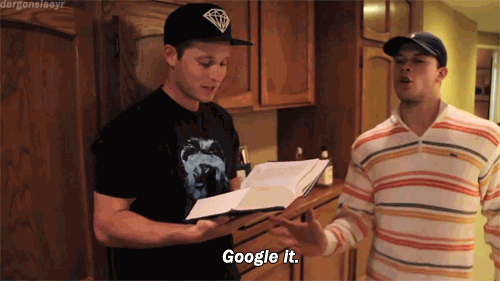The “Other Side” Is Not Dumb. – Medium: "What is emerging is the worst kind of echo chamber, one where those inside are increasingly convinced that everyone shares their world view, that their ranks are growing when they aren’t. It’s like clockwork: an event happens and then your social media circle is shocked when a non-social media peer group public reacts to news in an unexpected way. They then mock the Other Side for being “out of touch” or “dumb.”"
Carefully read the article linked above.
1. Think about how you interact on social media, like Facebook or Twitter.
2. What is your reaction to these statements?
3. What are some of the suggestions given by the author to correct this faulty way of thinking?
4. What are the biggest dangers of being trapped in an "echo chamber" on social media?
5. How will you avoid this in the future?
Answer all five questions in a comment below. Do your own work and number your responses. If you say the same thing as someone else, you will not get credit. Grammar counts. This is a test grade.
Carefully read the article linked above.
- The author states that everyone tends to believe their own viewpoint is the right one, and that other people are wrong.
- This affects how people behave on social media - they tend to only click on news articles or stories that support what they already believe to be true.
1. Think about how you interact on social media, like Facebook or Twitter.
- What articles do you tend to click on and read?
- What news stories do you share?
2. What is your reaction to these statements?
"Isn’t it possible that we’re not right about everything? That those who live in places not where you live, watch shows that you don’t watch, and read books that you don’t read, have opinions and belief systems just as valid as yours? That maybe you don’t see the entire picture?...
When you hear someone cite “facts” that don’t support your viewpoint don’t think “that can’t be true!” Instead consider, “Hm, maybe that person is right? I should look into this.”
Because refusing to truly understand those who disagree with you is intellectual laziness and worse, is usually worse than what you’re accusing the Other Side of doing."
3. What are some of the suggestions given by the author to correct this faulty way of thinking?
4. What are the biggest dangers of being trapped in an "echo chamber" on social media?
5. How will you avoid this in the future?
Answer all five questions in a comment below. Do your own work and number your responses. If you say the same thing as someone else, you will not get credit. Grammar counts. This is a test grade.





